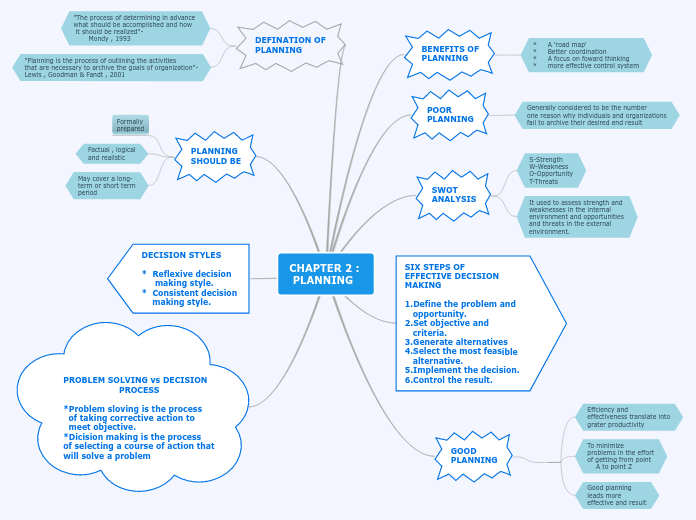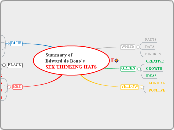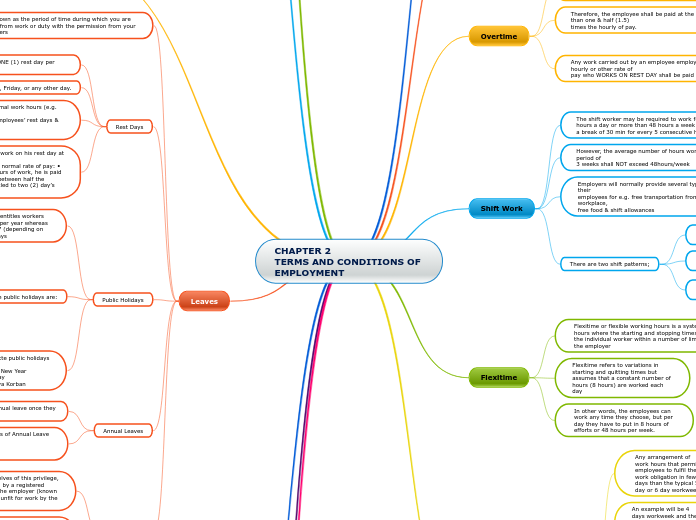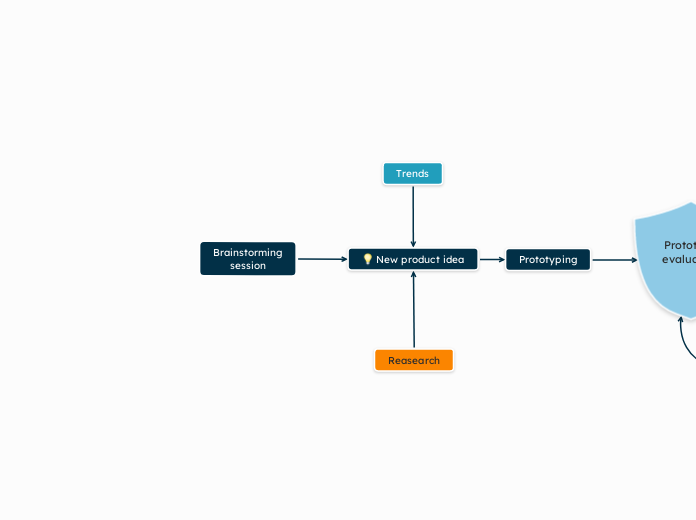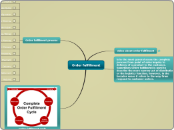af Muhammad Shamil 5 år siden
335
CHAPTER 2 : PLANNING
Effective planning involves outlining necessary activities to achieve organizational goals, focusing on both strengths and weaknesses internally and identifying opportunities and threats externally through SWOT analysis.
